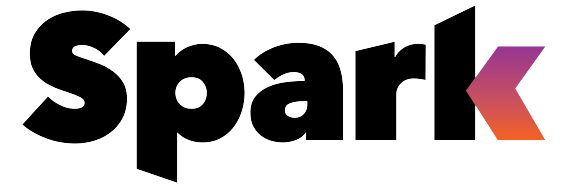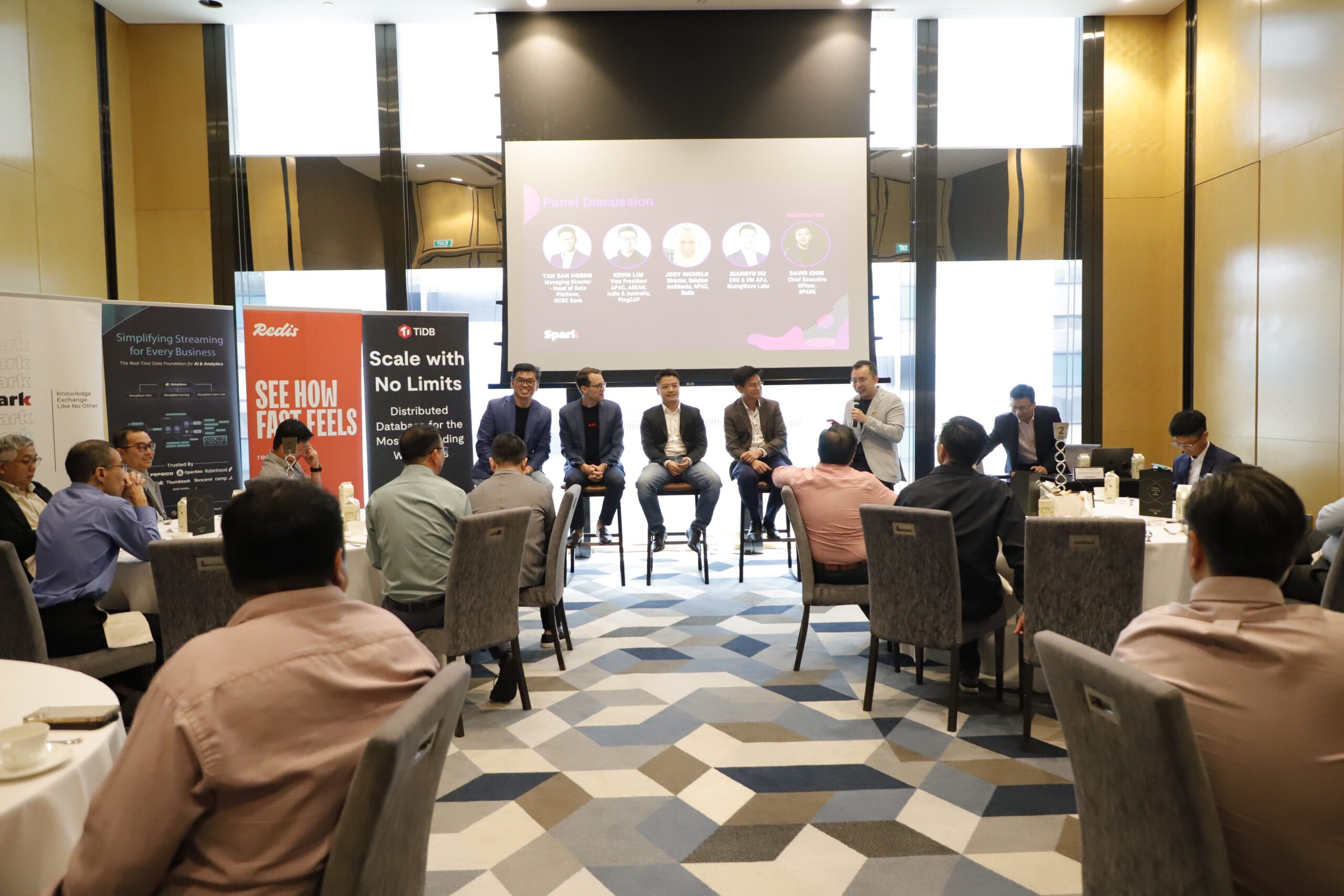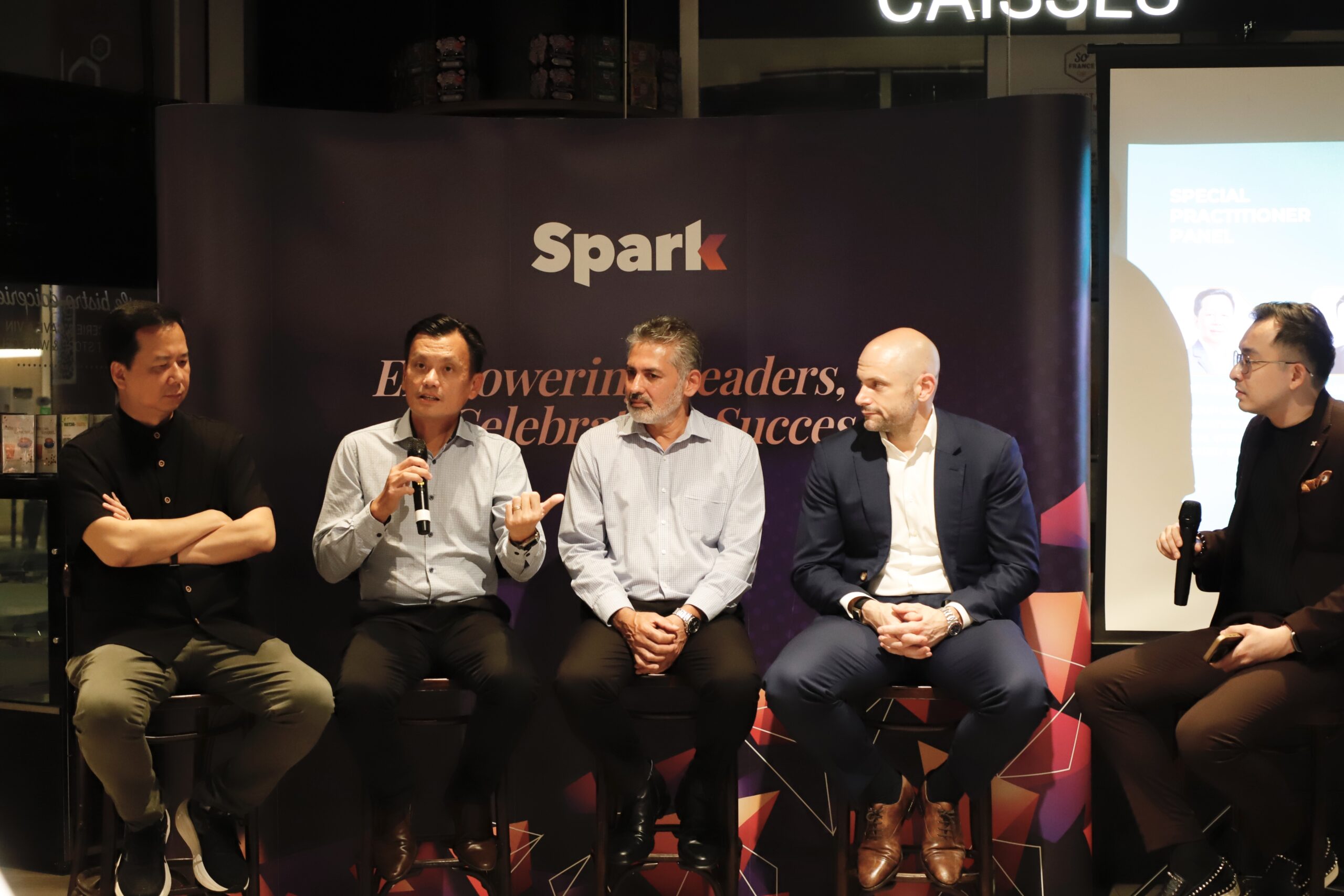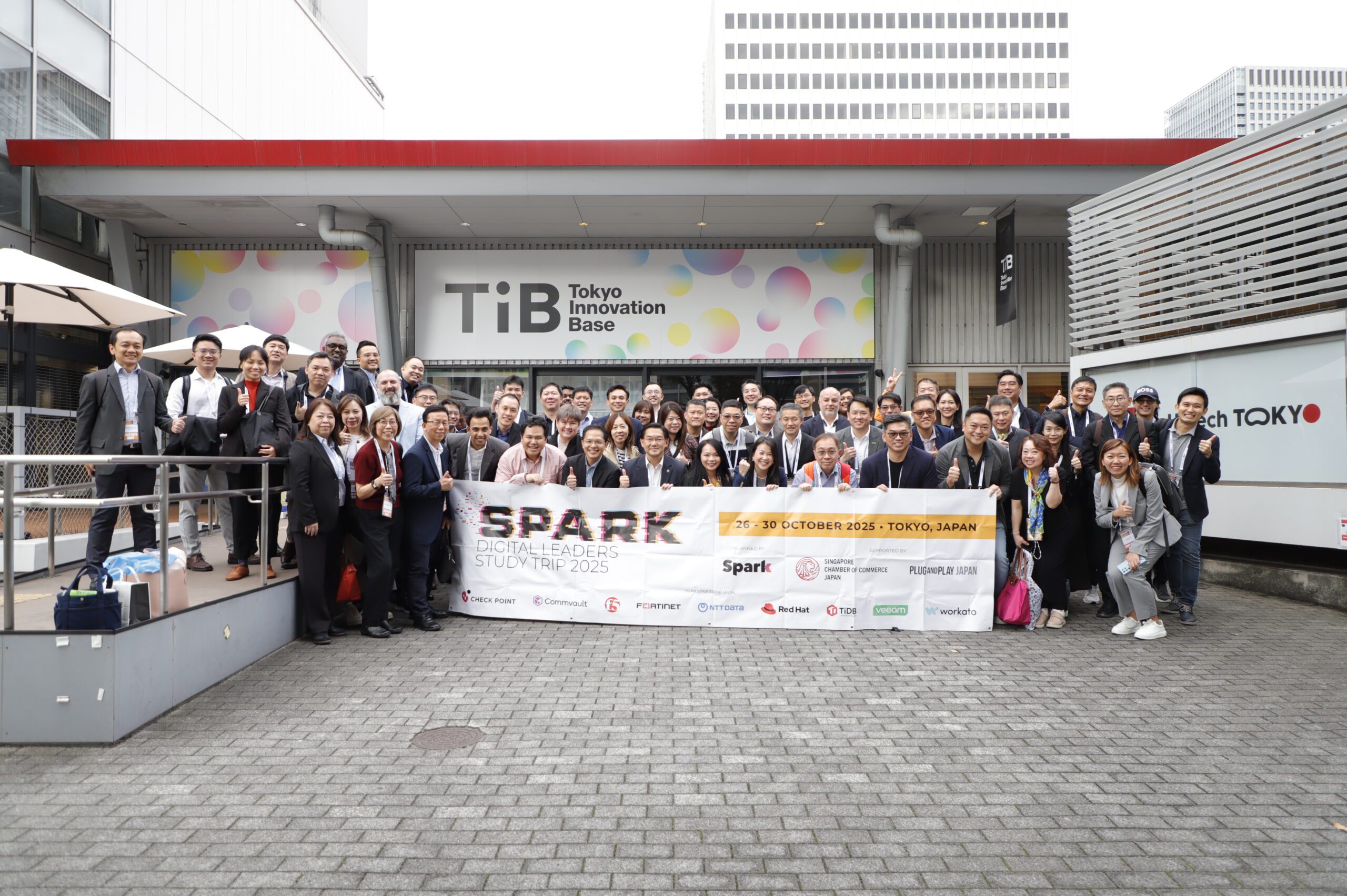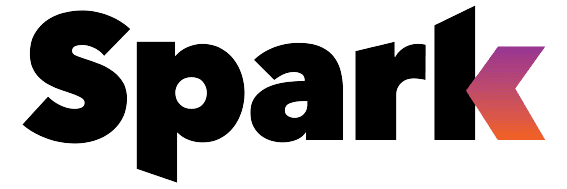Addressing the rapidly changing workforce demographic, enabling Gen Z and ensuring continual business success.
Emerging technologies, digital transformation as well as social and demographic changes are shaping the future of work. A select group of Singapore’s top IT chiefs gathered on 17 April 2019 for an insightful lunch discussion jointly organised by CIO Academy together with Dell EMC and VMware under the umbrella of Dell Technologies, to exchange best practices and practical insights on “Transforming Workplace Collaboration to Accelerate Business Outcomes.”
CEO of CIO Academy Asia, P. Ramakrishna opened the proceedings of the event by outlining intended areas of coverage for the lunch briefing. These included; the key drivers of workplace transformation and the challenges associated with having to: manage the different personas of the current and emergent workforce; provide the requisite connectivity and user-experience each worker requires; drive and enable cross-functional collaboration between infrastructure (IT included), human resource and other business functions; and, ensuring security and trust between parties within and outside the organisation.
Ramakrishna concluded his opening speech with a point on the need today for organisations in general, and their management in particular, to develop their digital intelligence. “HR folks are sharing with me that when they interview people, their digital quotient is being used as a criterion for deciding whether or not to hire them,” he said. “No longer can a leader say he doesn’t know anything about security. He needs to understand something about security because when it hits his organisation, business will be affected.”
Keynote presentations by Dell Technologies and VMware both provided useful insights into how the technology companies work together to deliver a unified workplace solutions to their customers.
Dragana Beara, Portfolio Messaging Director, APJ, Dell Technologies Marketing, began her presentation with a high-impact reminder to the audience that the digital transformation of the workplace is already happening and just about everywhere, even to little notice among most people around us. She then asked the audience–the majority of which probably still working very hard to keep the Millennials in their staff happy and productive–if they were ready for Gen Z (people born between the mid-1990s and the early 2000s), which is expected to be an even larger group than their preceding cohort. Referencing a global Dell Technologies study, she pointed out the key characteristics, aspirations and demands of Gen Zers—including how they are keen on working with technology, want more than money for the work they do, and actually value more human interaction.
With a stress on how technology can be an enticement for this new generation of the workforce, Beara segued into a brief citation of the value that the latest technologies, such as artificial intelligence and virtual reality/augmented reality, can bring to adopting organisations, just by empowering their staff. She illustrated this with the case study of a Scottish industrial pump manufacture, Weir Group, and a video depicting Nike staff designing a shoe. The remainder of her presentation provided: a comprehensive approach to putting together a Connected Workplace Program that provides for the facilities, digital experience and flexible work arrangements that meet the requirements of all the different Personas available at any organisation today; and an overview of the technology solutions that go into building a platform that supports such a program.
The momentum built up by Ramakrishna and Beara was carried further by Ian Song, Business Solutions Strategist, Advisory Services, VMware Southeast Asia and Korea, who talked about digital transformation as a necessity for businesses operating today, delved into the many aspects of how work and business is conducted now and into the future, the impact on IT divisions that need to be able to sufficiently provide the means for this digital transformation, and the requirement for organisations as a whole to develop a digital dexterity (defined as the ability to meet workforce needs by exploiting existing and emerging technology) that can meet the demands of a new generation workforce as well as how they can fulfil that mandate.
The event concluded with two discussions on stage. In the first one, on cross-functional collaboration and hosted by Koh Kok Tian, Deputy CEO of CIO Academy Asia, the Executive Director and Group Head of Human Resources and Information Technology for the Far East Organisation, Jodie Choo talked about the challenges of working out a transformation across a brick-and-mortar-centric organisation such as hers, and Samarth Kasturia, Workplace Lead, Standard Chartered Bank (via CBRE) shared similar concerns and some solutions from his experience in a financial house.
One approach Choo takes to maximise the chances of success in any transformation effort is to ensure that her team in HR and IT always work very closely with every single one of the six businesses at Far East Organisation they serve. This is in great part due to the fact that a large portion of her IT budget is managed by the various business units at her organisation.
Kasturia also pointed to the importance of such a relationship, and–in response to a question by Michael Henry, Global Head of Digital Experience, BHP, about overcoming cultural challenges to organisation-wide initiatives–added that having support and endorsement from an influential senior executive in the business can go a long way to helping a project overcome both technical and adoption problems and succeed.
The second discussion was hosted by Ramakrishna and saw the participation of Beara of Dell Technologies, along with: Jai Sahney, Director, End-User Computing Business, South East Asia & Korea, VMware; and, Ramachandran Narayanan, Director and Deputy CIO of the National Library Board of Singapore. The panelists responded to questions from Rama and the audience and offered some approaches to address huge challenges such as those to do with humanising technology to solve adoption problems, dealing with the diversity of the workforce, and not just initiating but sustaining digital transformation efforts across organisations.
As with the dialogue earlier, the panel discussion often came round to the relationship between the enablers of transformation (IT), the business and the users. From the audience, Baskara Rao, Deputy CEO and COO of Infosys Compaz drew from his close to two decades on the frontlines of technology deployment when he advised on what are most likely to bring about greater success in organisation-wide initiatives, among them: the solutions being deployed need to work, be of the right quality and offer the user experience promised—from the moment it is released/goes ‘live’; and, its discussion from conception, development and implementation has to involve a conversation across all levels of the organisation—not just by those at the top of the organisation chart.
Narayanan warned against ever starting any effort with a look at the enabling technologies or tools and said to instead first get the input and support of the stakeholders, which he referred to as “minimum success factors for any workplace transformation.” Sahney said to consult with the stakeholders and their users across all functions on their needs and only then talk about what technology will work to provide to their requirements and also fit their existing setup. Ultimately, Beara said, to ensure longevity of a transformation programme, it has to be recognised as an ongoing initiative that is essential to the evolution of the business.
In conclusion: operational excellence, HR practices and facility management must be strategically aligned. These three factors coupled with the use of relevant technology tools as key enablers are instrumental for the overall success of any workplace transformation project.
